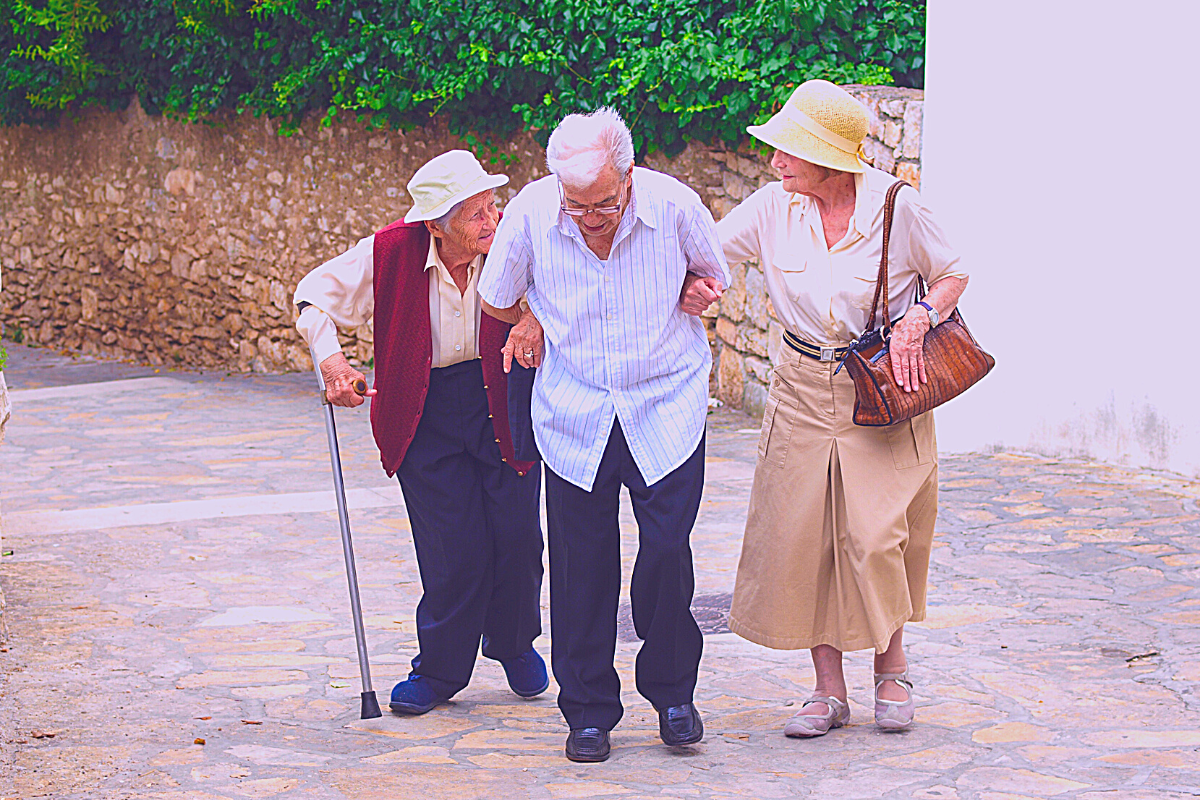Your Cart is Empty
🇨🇦 Canadian-owned. Supporting fitness & recovery across Canada 🇨🇦
🇨🇦 Canadian-owned. Supporting fitness & recovery across Canada 🇨🇦
Shop
Products
Balance and Falls Prevention: The Otago Exercise Program
November 29, 2022 2 min read

Falls are a common occurrence within older demographics and often result in injury. The Otago Exercise Program is designed for the prevention of falls in at-risk populations, including those over the age 80. This collection of exercises improves function thus reducing falls and fall related injuries. Injuries from falls may be related to the impact associated with the fall or comorbidities that are present prior to the fall. The severity of injuries do vary from person to person, in some instances can be severe enough to lead to death. It is not uncommon that once someone falls once, they will continue to fall multiple times thereafter.
Balance is a major contributing factor toward falling. Balance is defined as the ability to maintain center of mass within the base of support (Chiu et al 2020). When falls occur, a cascade begins between fear of falling and a reduction in balance confidence. This combination can result in more uncertainty particularly within taking part in activities of daily living. A reduction in socialization may occur due to a reduction in trips out of the home and can have a detrimental effect on mental health.
Research suggests that a combination of exercise styles including strength, balance, flexibility, mobility and physical performance enhance balance and as a result could reduce instances of falls and fall related injuries in older demographics. Otago, a falls prevention program was put together by the New Zealand Falls Prevention Research Group in New Zealand (CDC 2018). It is a comprehensive exercise program combining 17 exercises covering all of the recommended styles.
Studies have found that the program reduces falls by 35-40% in older adults, improves static, dynamic and proactive balance, and boosts confidence in addition to reducing the fear of falling (Chiu et al. 2020; CGWEP). Significant improvements were noted in some studies after 8-weeks of participation (CGWEP). A meta-analysis by Chiu et al found that participating in 30-minutes sessions was effective for improving balance (2020).
The Otago program is designed for at home use with minimal equipment. Click THIS LINK for the full program with instructions and a tracking chart.
For exercise modifications to use a band instead of ankle weights or for a bit of extra challenge to the original exercises, see our instructional post with modifications and progressions.
References
Carolina geriatric workforce enhancement program (CGWEP) (n.d.). UNC School of Medicine: Center for Aging and Health. https://www.med.unc.edu/aging/cgwep/courses/exercise-program/
CDC, . (2018, September). Tools to implement the Otago exercise program: A program to reduce falls . UNC School of Medicine. https://www.med.unc.edu/aging/cgwep/wp-content/uploads/sites/865/2018/09/ImplementationGuideforPT.pdf
Chiu, H., Yeh, T., Lo, Y., Liang, P., Lee, S. (2021, August). The effects of the Otago exercise programme on actual and perceived balance in older adults: A meta-analysis. PLoS One, 16(8).
Subscribe
Sign up to get the latest on sales, new releases and more …

